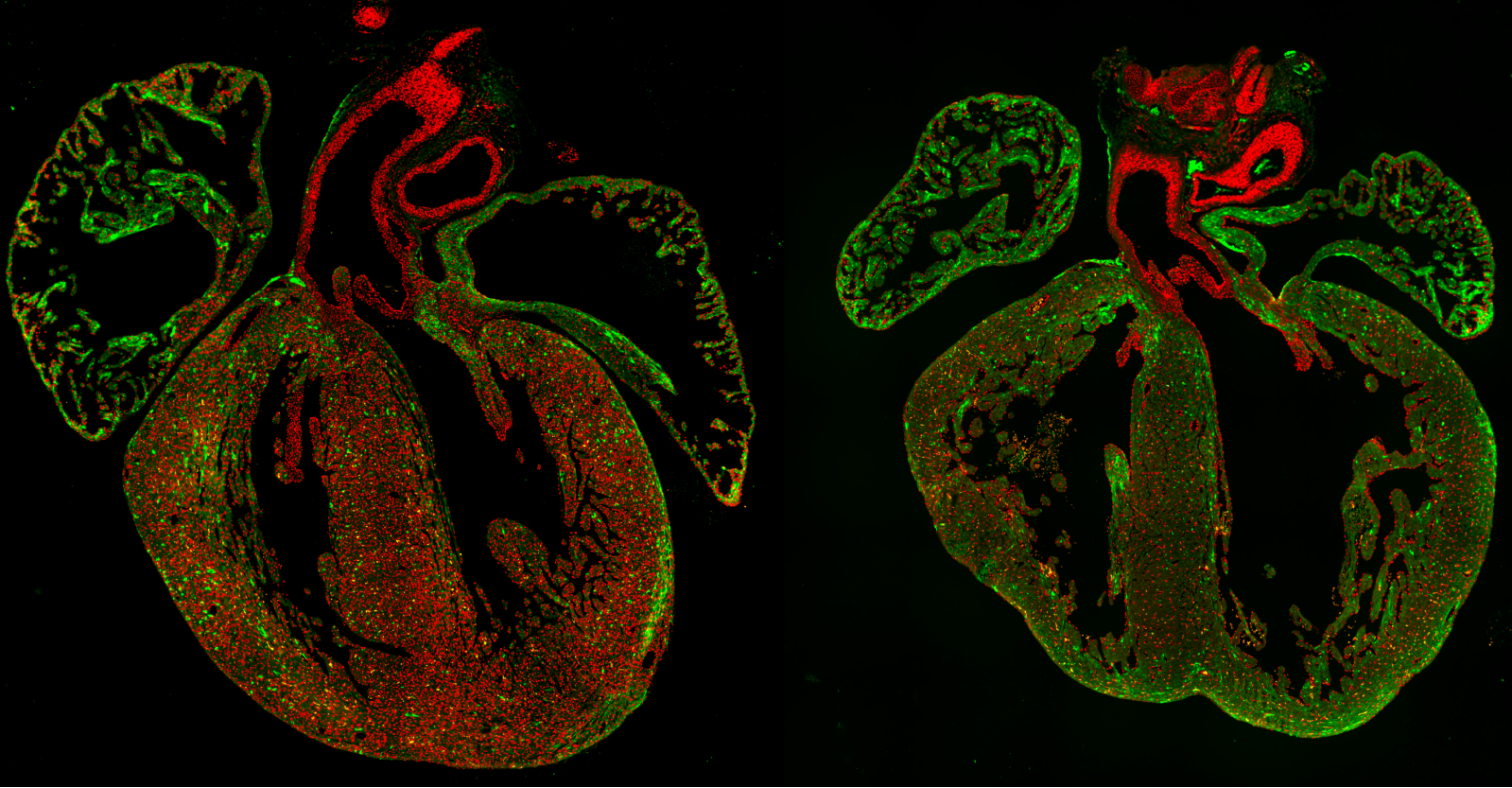Jang Lab
The Jang Lab is exploring how non-genetic factors, particularly epitranscriptomics, regulate complex physiological and pathological processes during heart development. We focus on the emerging field of post-transcriptional mechanisms that significantly impact mRNA metabolism.
After transcription, messenger RNAs (mRNAs) undergo various reversible chemical modifications essential for their function, stability and translation. Among these, N6-methyladenosine (m6A) stands out as the most prevalent and well-characterized modification in mammalian mRNAs. Like DNA and histone modifications, m6A methylation is dynamically regulated: methyltransferases ("writers") add the modification, demethylases ("erasers") remove it, and RNA-binding proteins ("readers") recognize it. These processes collectively influence gene expression and cellular behaviors such as stem cell pluripotency and cardiac metabolism. We aim to investigate the intricate regulatory mechanisms of m6A modifiers during the crucial phases of heart development.
Our Current Project

Cardiomyocyte specific deletion of methyltransferases causes early-onset dilated cardiomyopathy.
Early-onset DCM poses a significant threat during heart development, characterized by elevated morbidity and mortality. The predominant cause of fetal DCM is commonly deemed idiopathic, with a strong correlation to genetic mutations. Genes implicated in DCM typically encode proteins associated with the sarcomere, Z-disc, desmosome and nuclear filament. These genetic mutations, whether inherited or de novo, exhibit variable expressivity and penetrance. Notably, sarcomeric genes are often subject to post-transcriptional modifications during heart development. However, the extent to which post-transcriptional dysregulation contributes to fetal DCM pathogenesis remains undetermined, creating a substantial knowledge gap in understanding the etiology of fetal DCM.
We are aiming to understand that how dysregulation of m6A methyltransferases leads early developmental fail.
Inside the Jang Lab
Our Research
Congenital heart diseases remain leading causes of morbidity and mortality worldwide, yet many of the underlying molecular mechanisms remain poorly understood. In the Jang Lab, we believe that exploring the role of RNA modifications, particularly m6A, holds immense potential for uncovering previously unrecognized pathways that drive disease progression.
Our laboratory generates and utilizes genetic mouse models and human induced pluripotent cells to tackle very important questions in the field. We take advantage of multiple cutting-edge technologies such as m6A-seq, Ribo-Seq, Nanopore direct RNA-seq and RNA-fluorescence in situ hybridization (RNA-FISH).
Featured Publications
Join Our Team!
The Jang Lab welcomes applications from future scientists at all levels, including postdoctoral fellows, research interns, graduate and undergraduate students, and research assistants interested in cardiovascular development research. Please send your CV to Jihyun Jang. We are also actively open to collaboration. If you're interested in working with us, please reach out via email.



